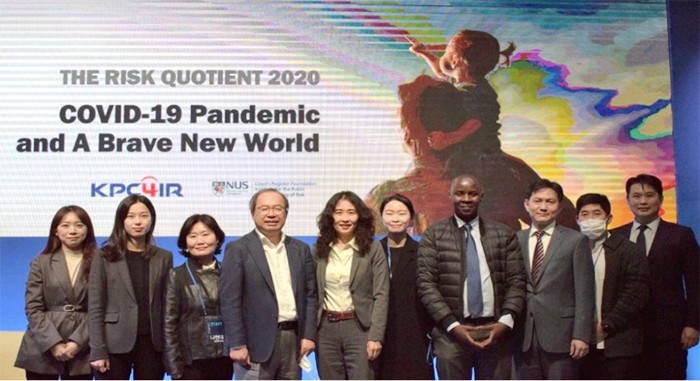The Risk Quotient conference has been held every year since 2018 to help policymakers and the public understand global risks. The purpose of this RQ2020 conference was to seriously diagnose and reflect on the reality of the world facing an era of unprecedented uncertainty throughout the industry during daily life due to the prolonged COVID-19 outbreak. The conference adopted a subtitle for the event from Aldous Leonard Huxley’s novel title ‘Brave New World’, which depicts a dystopia in which science and technological civilization was extremely developed. The experts discussed the impact of COVID-19 on digital innovation, education, labor, and the economy and proposed strategies to navigate the post-COVID-19 era through the 4th Industrial Revolution technologies.
KAIST President Sung-Chul Shin emphasized, “We must control the risk factors that threaten humanity and contribute to prosperity through the balanced development of constant scientific and technological innovation and policy development.” In the following keynote speech, Lan XUE, Dean of Tsinghua University’s Schwarzman College, introduced China’s COVID-19 response strategy and countermeasures in a national crisis.
In the afternoon panel session, presentations and discussions were convened in three areas: the impact of COVID-19 on digital innovation; the impact of COVID-19 on education and labor, technology leadership; and the digital economy and society in Asia. There was also an in-depth discussion of the future outlook of the non-face-to-face economy, advanced examples of promising digital technology and pandemic technological innovation in the post-corona era, the social change and response strategies due to the activation of online education and remote work, and the direction of digital technology development and utilization in the post-corona era, etc.
So Young Kim, the director of the KPC4IR, mentioned that “This conference is expected to serve as a springboard to help Asian countries recover from global crises such as the COVID-19 pandemic through active cooperation and joint engagement among scholars, experts, and policymakers.”
The conference of the Risk Quotient 2020: COVID-19 Pandemic and A Brave New World’ could be viewed again through the KAIST YouTube channel, https://www.youtube.com/watch?v=s-ZvZOcPfOg&t=13s.

Dr. Hyeon Dae (Heidi) Rha FIRIC / KPC4IR
Homepage: https://kpc4ir.kaist.ac.kr
E-mail: hdrha@kaist.ac.kr






